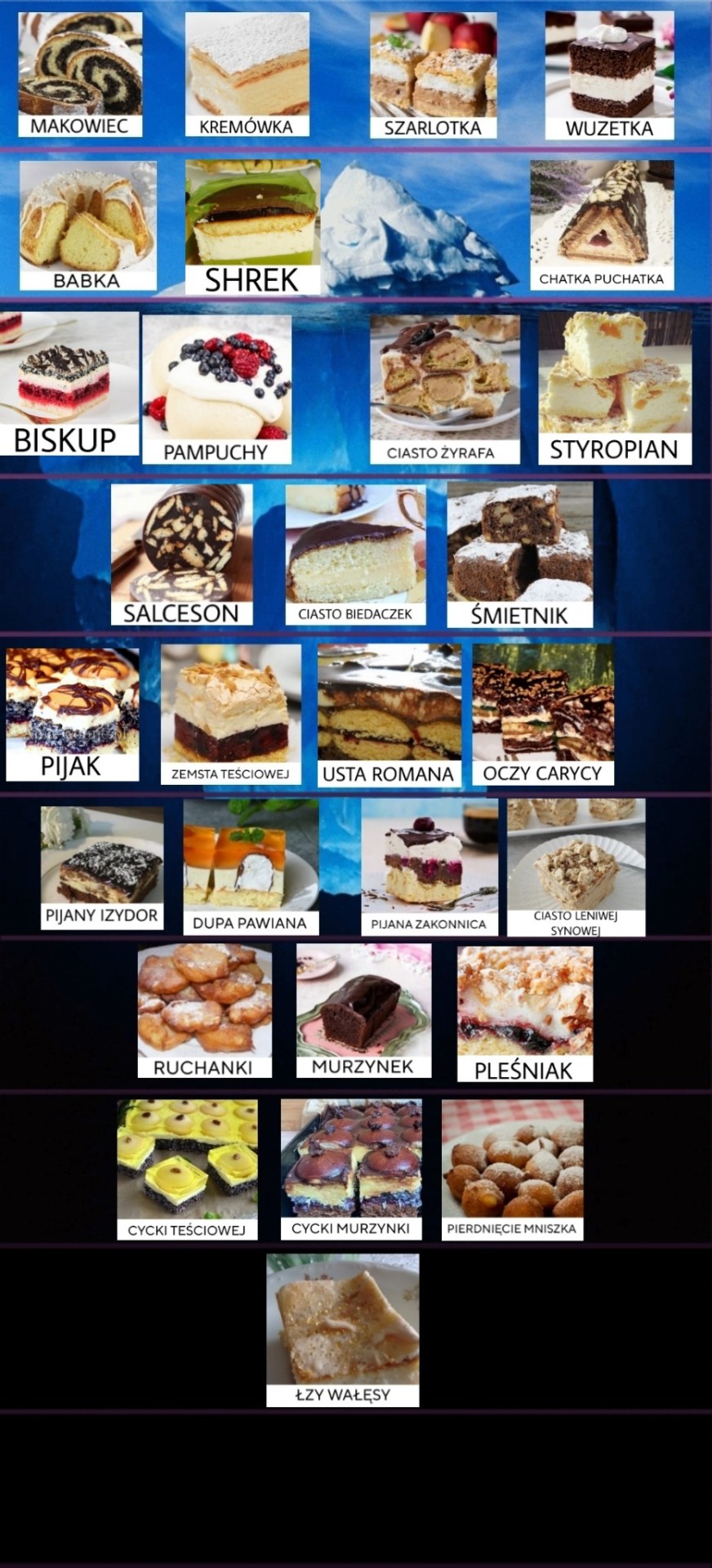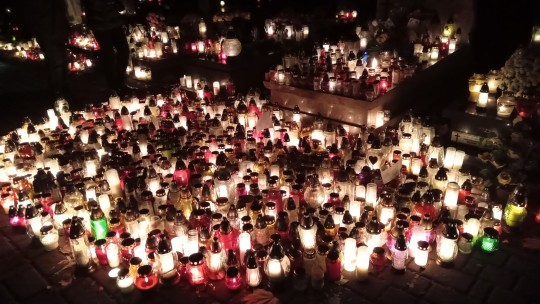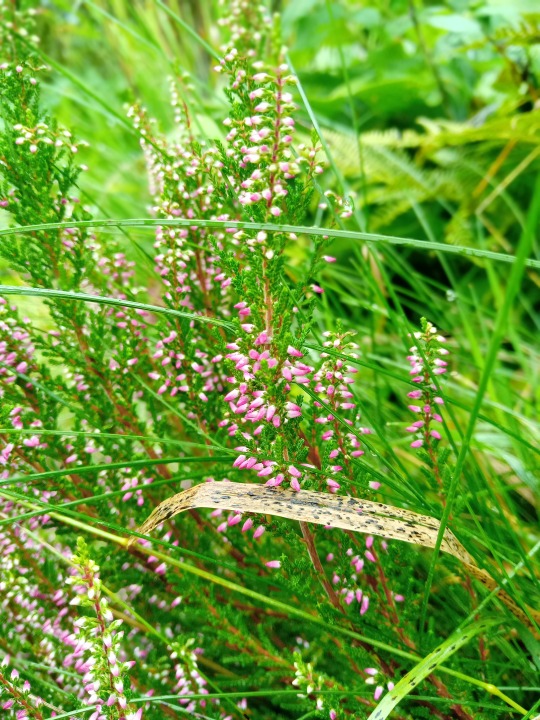Me talking about my subjective experience living in Poland. Amatourish enthusiast of lingustics.
Don't wanna be here? Send us removal request.
Text
Phrase: Na czczo

I deliberately chose this word for its fantastic pronunciation!
Na czczo means "on an empy stomach". Adjective "czczy" means empty, but is quite archaic and not used anymore exept medical language and the phrases describing iddle, unprodictive talks like:
czcza gadanina - gadanina is a noun from the verb "gadać" - colloquial word for "to talk", "to chat"
czcza paplanina - paplanina itself is already a useless senseless iddle talk, the verb is "paplać". It's made from the pla pla pla sounds (equivalent of blah blah blah).
czcza dyskusja - unnecessary and unprodictive discussion.
Na czczo is build from "na" + adverb, and it's a common way of saying X is in a certain way, style.
Zemsta najlepiej smakuje na zimno - Revenge is a dish best served cold
So na czczo is something you will hear from your doctor, when they order you to come form a blood test without breakfast or advise you how to take your med.
Na badania należy przyjść na czczo - blood tests should be taken on an empty stomach.
Ile jajek można zjeść na czczo? - Tylko jedno :) - How many eggs can you eat on an empty stomach - only one.
poziom glukozy na czczo - fasting glucose level
To be exact, na czczo is understood as a state of not having eating anything this day, while you can have an empy stomach after a few hours after a meal. There is a literal phrase "na pusty żołądek" = on empty stomach to differenciate it.
Leki przeciwólowe nie powinny być brane na pusty żołądek. Painkillers should not be taken on an emtpy stomach.
If you had your breakfast at 8 a.m. and haven't eaten anything and now at 1 p.m. you want to take your meds, you will be taking them "na pusty żołądek", while you won't be exactly "na czczo".
11 notes
·
View notes
Text
Fat Thursday / Tłusty Czwartek in Poland

Pączki z lukrem i skórką pomarańczową (doughnuts with sugar icing and orange zest) - [photo Anna Rezulak/KFP (fragment) on citation right]
Today is Fat Thursday and I would be surprised not seeing the doughnut posts from Polish community flooding the internet. So here’s some vocab and ideas of what you can eat for Fat Thursday in Poland.
Tłusty Czwartek – Fat Thursday
Pączek (pączki in plural) - doughnut, but without a hole. Generally this is a symbol of Fat Thursday to a such an extend, that even your employer will treat you with one or two doughnuts this day. They may or not not have an icing / icing sugar on tom, and they mostly do have a filling of rose marmalade.
Donat (donaty in plural) – obviously the word is a polonized word “donut”. It describes only these american donuts with a hole in them and heavy colorful icing and toppings (pączki have more traditional modest icing & toppings)
Faworki (already in plural) / chrust (singular, uncountable)– angel wings. In some regions it is called faworki, and in some – chrust. Chrust exactly mean “brush, brushwood”
Oponki serowe (already in plural) – crude cheese / cream cheese donuts (cheese being mixed with the dought). These are definitely with the hole, because oponka (in singular) – means “small tyre”.
#poland#fat thursday#tłusty czwartek#pączki#donuts#polish food#polish customs#polish language#polish cuisine#polska#langbr
24 notes
·
View notes
Text
Family names in Poland - gender forms
In this post I explain if a family name has different forms depending on the gender of the person or not.
Family names in Poland may or may not indicate gender.
Family names in Poland are either grammatically adjectives or grammatically nouns. To put it simply, adjectives have both male and female versions, and nouns do no.
1. Adjective names are those ex with ending on "-ski", "-cki". An adjective must match the noun it describes. So if you describe a man you need an adjective with masculine ending (ski, cki). If you describe a woman, you need feminine endigs that are - ska, -cka
(man) Lewandowski - (woman) Lewandowska
(man) Polański- (woman) Polańska
(man) Skłodowski- (woman) Skłodowska
(man) Bielecki- (woman) Bielecka
(man) Krakowski - (woman) Krakowska
Adjective-names decline just like any other regualr adjective in Polish language.
2. Other adjective-names - in most cases they also reveal gender
Not only -ski / -cki adjectives could be family names, but also common adjectives as well, like the adjectives describing colors, qualites, or those driven from the names of professions etc.
If a man's family name ends with -y, it means it's an adjective. Woman's form will end with -a. Mind that there are also many noun-names ending with -a, so it might happen that both men and woman has -a ending family name.
Adam Czarny (black) - Anna Czarna (black with female ending)
Adam Cichy (quiet)- Anna Cicha (quiet with female ending)
Adam Prosty (straight)- Anna Prosta (straight with female ending)
But:
Adam Grusza (noun: pear tree) - Anna Grusza (noun: pear tree)
Adjective-names decline like any other regualr adjective.
But here comes the twist. A woman can decide either her name would be in masculine or femenine form. "Anna Cicha" might sound as if we actually describe Anna as quiet, maybe it sounds a bit funny, so she can decide to use the form "Cichy", where there's no doubt its a family name.
If we have "Anna Cichy" situation, "Cichy" is not declined and always stays in the form of "Cichy".
3. Noun-names
So here comes every other name that is gramatically a noun. They have only one form, regardless of the gender of the person who bears them.
Adam Wilk - Anna Wilk (wilk = wolf. masc. gender)
Adam Myszka - Anna Myszka (myszka = little mouse, fem.gender)
Even patronymics as official family names do not chage form according to gender (despite the fact that their literal meaning is "son of x")
Adam Piotrowicz - Anna Piotrowicz
In official documents, you don't add any other endings to get femenine form of the name. Anna Wilk stays Wilk.
You migth wonder about the ending "-owa", just like it is (was) for women's forms of the names in Czechia (-ová/-ova/-eva)
But in Poland the ending -owa are used only in informal situations and it refers to marital status (or nowadays being couple is enough) "Wilkowa" is a female spouse or partner of Mr. Wilk, but she herself doesn't even have to bear his name.
4. Declension of noun-names
Men's names - almost always decline.
Female names - decline only if the name is a noun of femenine gender. It's like with Anna Cichy situation. When it's Cicha, so in femenine gender, it declines. When it's Cichy, so in non-femenine gender, it does not decline.
Nie ma Anny (in genitive form ) Wilk (does't change because wilk is of masculine gender)- Anna Wilk is not there.
Nie ma Anny (in genitive form) Myszki (in genitive form, it does decline because myszka is of femenine gender)- Anna Myszka is not there
12 notes
·
View notes
Text
Months: January means Styczeń

The name styczeń probably comes from the word "tyka" (diminuitive "tyczka") - meaning: pole, cane. January was a proper time to produce them and also rows of poles were used to mark snow-covered roads.
The other hypothesis it that it comes from the verb "stykać" - to contact in a context of two object touching each other. So styczeń is the time that new year and old year contact.
You can use the word "tyczka" to informally describe a very high and lean person.
67 notes
·
View notes
Text







Christmas Fair at Main Market Square in Krakow.
6 notes
·
View notes
Text
Months: December means Grudzień

The name grudzień comes from the word gruda - a clump, a lump. The most common explanation is that it refers to the bare ground that becomes uneven and bumpy when it freezes in December (ex. on the roads that were probably all muddy in November). So here gruda means a frozen clump of soil.
Gruda already implies that it is big. In everyday use you will rather meet the diminutive - grudka / plural: grudki.
W moim budyniu są grudki! - There are lumps in my pudding!
Mam jakieś grudki na twarzy - I have some papules on my face.
15 notes
·
View notes
Text
Grandmother is babcia
In Polish language the most common way to adress your grandmother is babcia. This is also how you normally refer to somebody's else grandma, even in quite official situations.
Proszę pozdrowić ode mnie Pańską Babcię - Please send my regards to your grandmother, sir.
You see, babcia is alread a diminuitive form that comes from the word babka. In my region* you can't call your grandma "babka" - neither if you talk to her, nor if you talk about her. It's just ungentle, even rude, stating the LACK of emotional bond between you and her. Babka is ok in situations like when you discuss genealogy or write a legal letter.
* language differs from region to region and from family to family
Babcia is already a sweet and loving way to call your grandmother, but if you want to add some extra love, you can use:
-babunia (more frequent)
-babusia (less frequent)
I'd say not many families use these on the daily basis.
11 notes
·
View notes
Text

Iceberg polskich nazw wypieków uporządkowany od najmniej przeklętych do najbardziej
2K notes
·
View notes
Text
All Saints' Day and All Souls' Day in Poland. Vocab.


Nov 1st. = (Dzień) Wszystkich Świętych
Nov 2nd = Dzień Zaduszny / Zaduszki
święty - holy, sacred,
dusza - soul
duch - spirit, / ghost
znicz - grave candle (as in the pictures above, a candle put in a colored glass)
grób - grave
wiązanka - floral tribute. Word wiązanka is used only in grave / coffin context. The word comes from the verb "wiązać" - to tie, to bundle up, - because the "floral" decorations are budled up together.
cmentarz - cementary,
odwiedzić cmentarz - to visit a cementary
zaświecić / zapalić znicz(e) - to lit the grave candle(s)
położyć wiązankę - to put the floral tribute (on the grave)
97 notes
·
View notes
Text
Months: November means Listopad

The month November is called listopad in Polish language. The name refers to falling of leaves and is a compound created by:
-"list" - that part refers to liść - a leaf. So "st" here changed to "ść", but for example "st" stayed in the word listek - small leaf
-"o" - this is an infix. You can glue two words with "o" to create one. Somethimes you also need a hyphen if the words are long,
wiatrołap - mudroom (wiatr - wind; łap - stem of the verb to catch, so literally it is "wind catcher")
samolot - plane (sam - alone, by itself, lot - fly, literally "a machine that flies by itself")
samochód - car (sam - alone, by itself, chód - walk, , so samochód "goes by itself/ automatically")
-"pad" - stem of the verb "padać" / "paść "- to fall.
10 notes
·
View notes
Text
Months: October means Październik

The month October is called październik in Polish language. The name comes from the word paździerz. Paździerz is a waste product of linen production. It literally means lignified (wooden) fragment of a plant stem such as flax or hemp. So the name of the month refers to home fabric production.
Don't bother to remember the word paździerz. It is hardly used nowadays. One existing usage is płyta paździerzowa - flaxboard. In case you run at this word, at some point (+10 y. ago) paździerz was also used as a slang word to describe unattractive person or a bad/hopeless situation, worthless low quality object - but nobody uses it anymore.
7 notes
·
View notes
Text
Months: September means Wrzesień
The month September is called wrzesień in Polish language. The name comes from the name of a heather - in Polish wrzos.

As you can see by now, you can create a name for a month by adding the ending -eń or -ec to the characteristic occurence that mark these season. Thats rule applies to:
-EŃ ending: styczeń, kwiecień, sierpień, wrzesień, grudzień
-EC ending: marzec, czerwiec, lipiec,
OTHERS: luty, maj, październik, listopad,
(I'll cover the upcoming months in separate posts)
The adjective of wrzesień is - wrześniowy/a/e. And some examples:
Wrześniowe niebo - September sky
Wrześniowy wypad w góry - September excursion in to the mountains
Kampania wrześniowa - September Campaign of 1939. Note that the adjective comes second, as it is the proper name of the historical event. I wrote about it in one of the previous posts.
16 notes
·
View notes
Text
Months: August means Sierpień
The month August is called sierpień in Polish language. The name comes from the name of a sickle - in Polish sierp.
Sierp was used to reap grain crops. So sierpień refers to harvest time - żniwa.
Żniwa actually began earlier, somewhere around half of lipiec (July), but as with other Polish names of the months, which refer to field works and changes in nature, the timing is slightly off.
Złote żniwa - record harvests, literally means golden harvests. It is used figuratively, for an intense but short seasons of unusual / seasonal high sales.
Sprzedawcy lodów mają w wakacje złote żniwa. - Ice cream sellers have golden harvests at summer holidays.
12 notes
·
View notes
Text

Idiom: Być w lesie
It literally means 'to be in the forest / woods" and it can be used in its literal meaning like when you go for a walk.
The idiom however means you're far behind a schedule with some kind of project or you're still in a very preliminary, undeveloped stage of this project, that is chaotic and not well defined.
Jesteśmy w lesie z przygotowaniami do wesela - we're (far) behind schedule with wedding preparations, it suggests that they have barely started any preparations at all and it's gonna be a disaster
Jestem w lesie z budową domu - I'm at the beginning of building a house: and I'm kinda lost, I don't have a clear vision of what I need to do step by step or how the house will turned out to be.
Actually this idiom is mostly used in first person singular or plural.
5 notes
·
View notes
Text
I am pleased to inform that the Italian word for bathroom is the same as the Polish word for swamp
✨ Bagno ✨
8 notes
·
View notes
